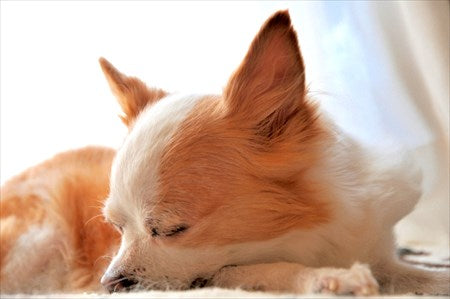Low-calorie dog food is recommended for senior dogs! What to do when your dog can no longer eat dog food!
Dogs age faster than humans. Small dogs such as toy poodles and miniature dachshunds, and medium-sized dogs such as Shiba Inu and beagles are classified as senior dogs at age 7, while large dogs such as golden retrievers and Siberian huskies are classified as senior dogs at age 6.
As senior dogs, just like humans, their bodily functions gradually age, so it becomes necessary to pay special attention to their health. In particular, it is necessary to pay attention to their daily diet, and we recommend feeding senior dogs over 10 years old soft dog food with low calories.
Here we will explain the best dog foods for senior dogs.
Best soft dog food for senior dogs

The average lifespan of dogs has increased in recent years, with many dogs living to over 10 years old. Just like humans, senior dogs become less active and their digestive functions decline compared to when they were puppies or adults.
In addition, their ability to chew dog food weakens, making it difficult for them to eat hard dog food. To ensure they get enough nutrition, it is recommended that you choose appropriate dog food for seniors.
Let's give some examples of what types of dog food are good for you.
High protein, low fat and low calories
Senior dogs do not need high-calorie dog food because they become less active. Senior dogs need 10-15% fewer calories per day than adult dogs, so choose low-calorie, low-fat dog food.
◆ Soft foods that contain ingredients that maintain healthy joints
Senior dogs' bones and joints become weaker. Therefore, we recommend choosing food that contains ingredients such as glucosamine and chondroitin, which are important in preventing the decline in joint function caused by aging. Wet food is also recommended as it is easy for senior dogs to eat.
What to do when your senior dog stops eating dog food

As dogs get older, they may stop eating as much, even if the food is low-calorie and soft, and made for senior dogs.
When this happens, owners may worry that their dog is sick. Here are some reasons why your dog may lose its appetite:
◆ Food preferences change
As your dog gets older, their tastes and preferences change and they may no longer want the same dog food they used to eat.
Loss of appetite
Poor digestive function can lead to loss of appetite.
◆ Less movement
Your leg muscles will weaken and you will move less, which will slow down your metabolism and make you feel less hungry.
◆ Pain
If you have pain anywhere in your body or in your mouth, it is difficult to eat and you will inevitably lose your appetite.
When preparing meals for your dog, try to think about why he has lost his appetite and come up with various ideas.
For example, we recommend trying a different dog food brand, or adding your dog's favorite toppings to his usual dog food. You can also try warming up wet dog food, changing the height of the container, or changing the container itself.
Also, while your dog is walking on its own, we recommend low-calorie dog food. If your dog becomes bedridden, it will be difficult for him to eat as he did before, so you should feed him high-protein, high-calorie dog food little by little, rather than low-calorie food.
Low-calorie dog food is recommended for senior dogs! If you are considering purchasing it, please visit BAUWAW.
At BAUWAW, we sell recommended pet food made with carefully selected ingredients, with the hope that your beloved dog will stay healthy and energetic forever.
We have a wide selection of senior dog foods, including not only low-calorie foods that use high-quality protein, but also foods that contain nutrients necessary for senior dogs, such as chondroitin and glucosamine. If you are looking for dog food that suits your dog's body, please use BAUWAW's mail order service.

